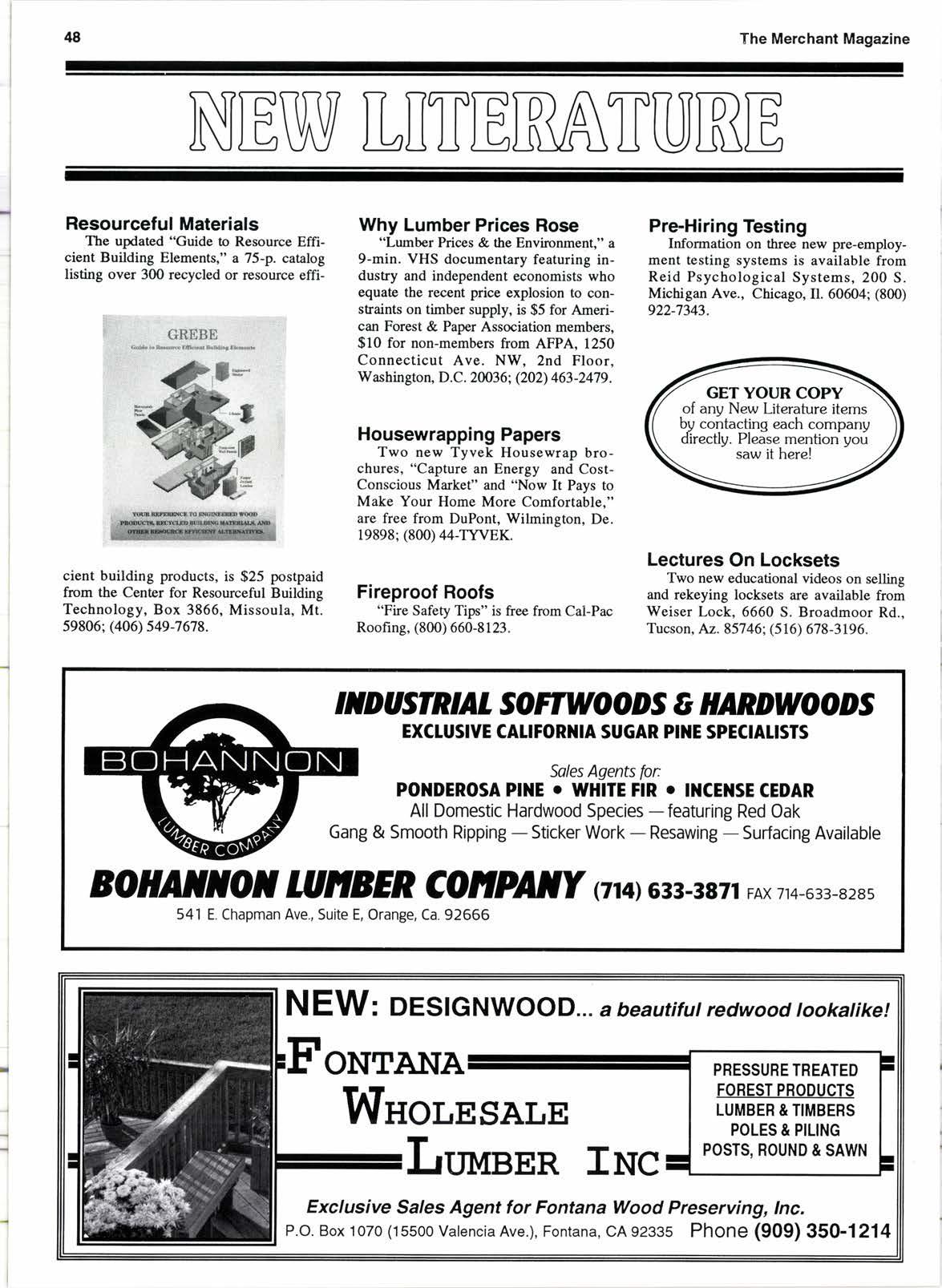
2 minute read
Bag more insulation sales
come close to or already meet the MEC insulation requirements:
California
.
WH'tl,fiilyff#'U8i"Jfl
the Clinton Administration's proposed energy tax, building products retailers who stay on top of energyrelated legislation and its opportunities can upgrade their insulation sales and pofits.
Specifically, retail insulation sales can be boosted by playing to the upgraded state energy codes, federally financed homes or home improvement projects, and energy-efficient mortgages.
Energy Codes
By October 1994, two years after its signing, the National Energy Policy Act requires each state to report to the Department of Energy that its energy code meets specified standards or explain why no changes are needed.
These standards for residential construction should follow the Model Energy Code (MEC), developed by the Council of American Building Officials (CABO).
To stay ahead of such changes, retailers should learn what the MEC requires for their specific area, and prepare to promote the appropriate insulation products that will help meet upgraded energy codes.
Through recent revisions, 16 states
Connecticut
Florida
.
Georgia
Idaho
Indiana
.Iowa
Minnesota
Montana
North Carolina
New Mexico
North Dakota
Oregon
Tennessee
Utah
Washington
Story at a Glance
lnsulation demand should rise with new energy legislation ... retailers can market knowledge of revised codes, funding requirements, specialmortgages.
ciency standards.
The legislation requires Oat the Department of Housing and Urban Development (HuD) upgrade its energy standards for home financing within one year of the bill's passage. The MEC automatically goes into effect if HUD misses the one-year deadline.
In addition, home improvements financed by federal sources, such as the Veterans Adminisration (VA) or the Farmers Home Administration (FnHA), may also have to meet upgraded energy requirements, depending on the lender.
Dealers can market this energy code knowledge and help their customers. By working together with such federal agencies as HUD, retailers can position themselves as energy experts, able to answer which materials are best to meet upgraded energy standards.
Energy Efficient Mortgages
Retailers can further upgrade insulation sales through other energy financing requirements. Energy efficient mortgages, also addressed in the energy act, require homebuyers to meet specific energy conservation standards.
In existence for some time, these mortgages allow homebuyers to rade expected energy savings for their first home mortgage or a bigger mortgage to buy a better home. The National Energy Policy Act proposes standardizing the loan process and necessary home energy efficiency requirements to help build a national energy efficient mortgage program.
Retailers can then partner with local lenders to serve as an information source for homebuyers who want to quickly meet energy efficiency mortgage requirements themselves.
Retailers in these states can immediately begin tying heightened state energy code requirements into their merchandising. Unless they can provide documentation that their present codes are sufficient, tle remaining states will have to revise their codes as well.
Federal Financing Requirements
The energy act further promotes energy efficiency requiring federally funded construction and remodeling projects to meet upgraded energy effi-
In essence, a little knowledge of the new legislation can help to promote insulation as an easy and inexpensive way 0o meet the stricter energy standards.









